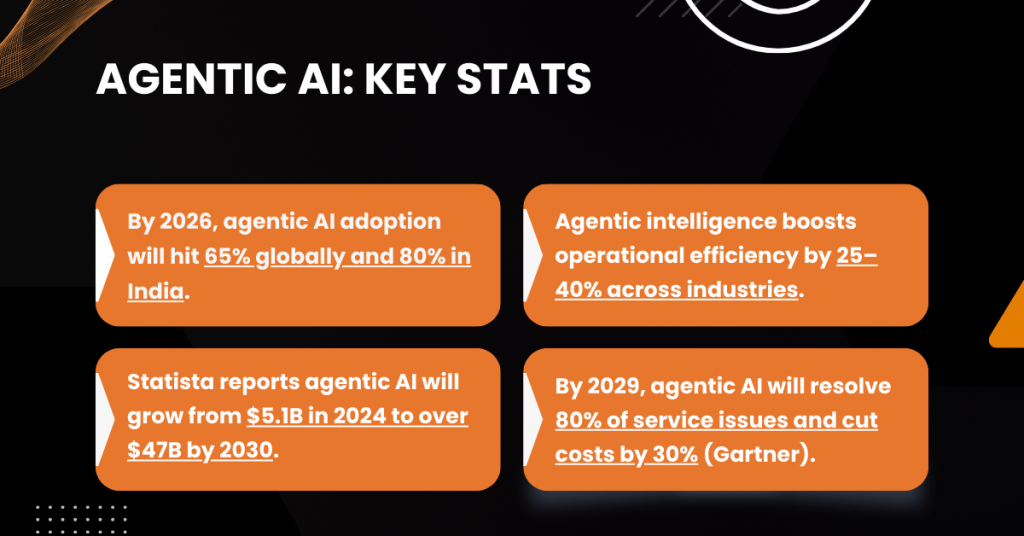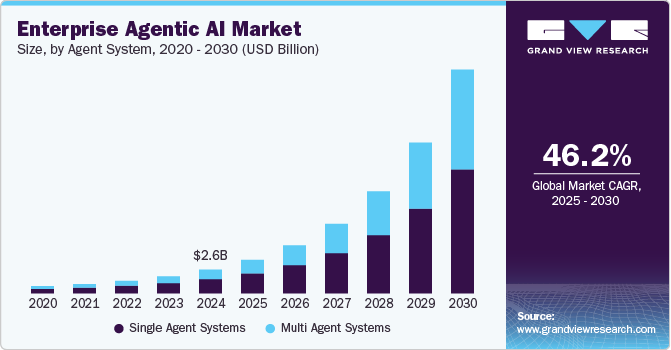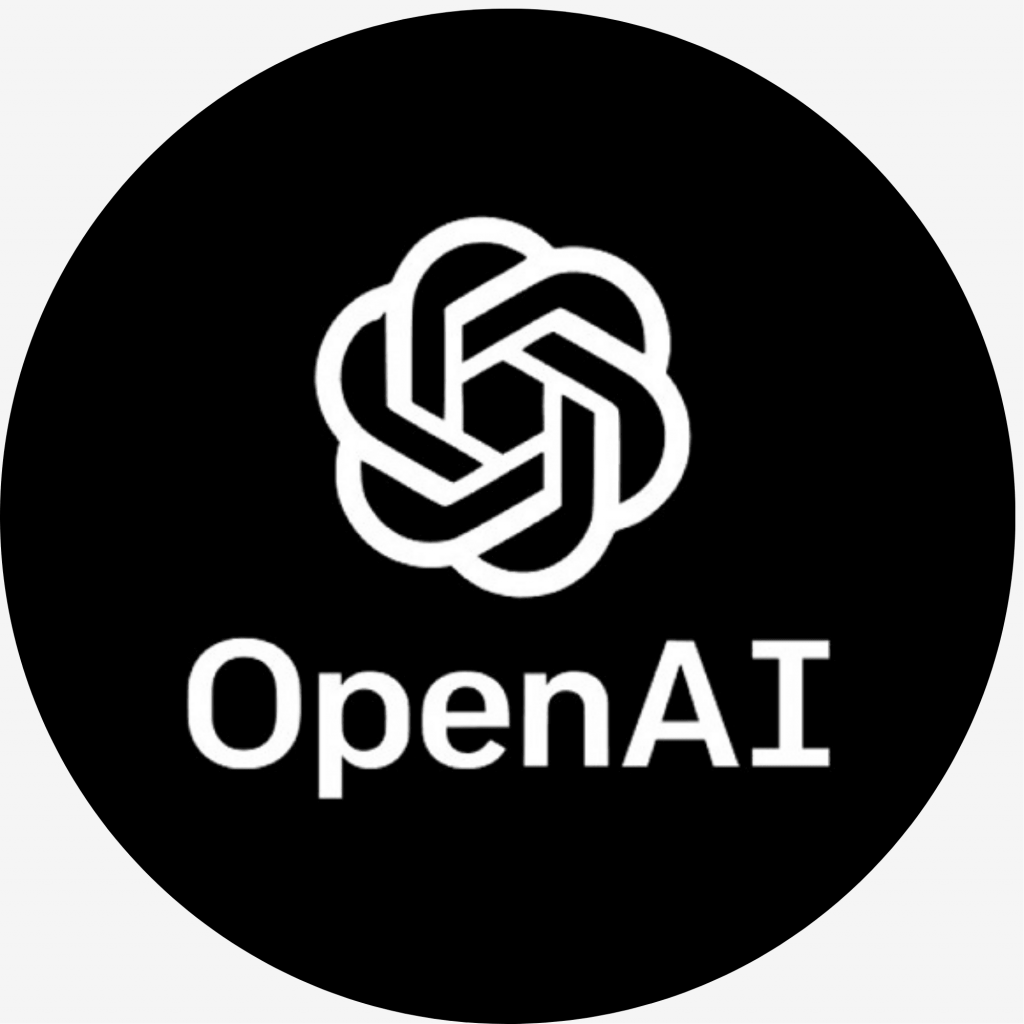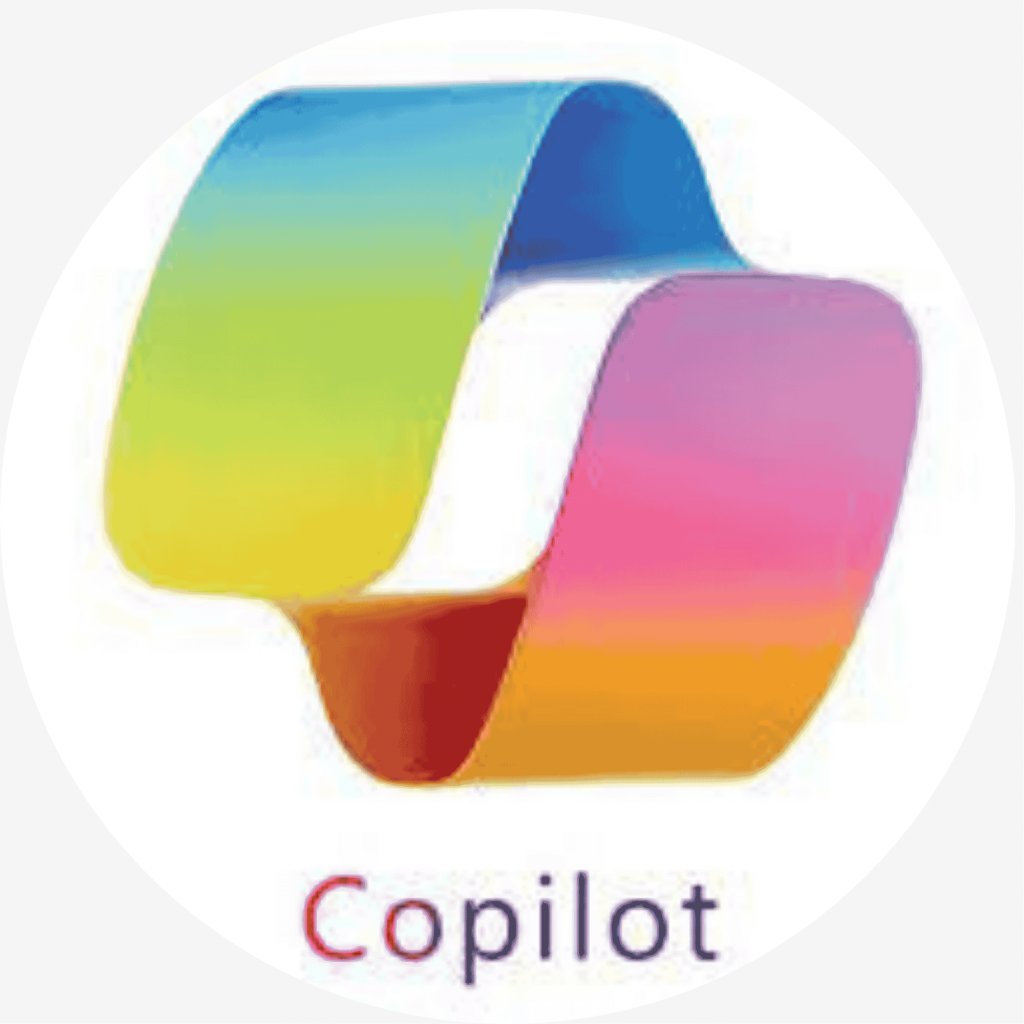Table of Contents
Agentic AI: An Overview
Agentic AI is rebuilding the boundaries of traditional artificial intelligence with its more sophisticated capabilities and evolving machine autonomy. Conventional AI mainly relies on static rules and structure, whereas the new model can take independent decisions. For instance, AI in chatbots implements a generative tool to offer feedback through natural language processing; on the other hand, agentic AI uses modern research and gives enhanced replies to complex queries.
It exhibits adaptive behavior and dynamic learning to solve multi-step problems and intense tasks without human intervention. The new frontier of autonomy uses large language models and combines them with machine learning and enterprise automation to generate AI agents.
A latest scale of independence in technology has transformed business operations across multiple sectors, with amplified data processing and dynamic problem-solving. AI agents handle operations beyond simple tasks and boost productivity without requiring human supervision.
Modern agentic AI autonomous systems are improving workflow in customer service, automating logistics, and optimizing healthcare processes. For instance, in a customer service platform, AI agents can offer responses beyond simple question answering, such as checking outstanding balances and recommending accounts, along with completing transactions on customer request.

Agentic AI: Statistical Highlights
The rise of Agentic AI is not just theoretical but an emerging technical trend of various industries, backed by market stats. Multiple analyses show that the self-directed machine system is making a transformative shift in the enterprises’ intelligence. Businesses looking for innovative digital strategies are increasingly adopting agentic AI solutions. The following statistical highlight represents the growing acceptance of autonomous intelligence and its future outlook:
- Studies show that 65% of global enterprises seek to adopt agentic AI, whereas countries like India are expected to implement this transformative technology in more than 80% of their businesses by 2026.
- According to Gartner, Inc., agentic AI will autonomously settle 80% of common customer service issues by 2029, reducing operational costs by 30%.
- According to Statista, the market value of agentic AI was $5.1 billion in 2024 and is anticipated to reach over $47 billion by 2030.
- Adopting agentic intelligence increases operational efficiency by 25%-40% across industries.

What is Agentic AI and How Does It Work?
Agentic AI is the modern version of traditional machine learning technology, which can perform superior operations with minimal human supervision. The proactive agents replicate human decision-making through their goal-driven behaviour. They are capable of sensing, deciding, taking action, and working in a given environment freely. Unlike old Intelligent technology, which was based on predefined constraints, relying on manual input, agentic AI developers created solutions that exhibit adaptability to context-specific factors.
The upfront artificial intelligence combines people, RPA robots, and AI agents, each of them having their own contribution. People provide goals to the agents, and robots ensure accuracy in the work by enabling agents to collect correct data.
First-generation AI works on generative intelligence and can create the results following a fixed pattern, whereas agentic AI extends its capability by using a large language model and goal-oriented outputs. For instance, OpenAI’s ChatGPT, based on generative AI, can create content like texts, images, and code, but the new self-directed AI can use that content to provide better results, like a solution to a complex problem.
The agentic system works through four steps described here:
- Perceive: Intelligent agents search and collect vast data from multiple relevant sources, including digital interfaces, market databases, and sensors. Then it processes the gathered information to derive meaningful features and recognizes related entities in the environment.
- Reason: A large language model works as a reasoning engine that understands goals and tasks, generates strategies, and integrates specific models for certain functions to create relevant outputs.
- Execution: Uses application programming interfaces to integrate with external software and tools to take action as per the formulated plan and input goals.
- Learning and Adaptation: This proactive AI learns from its past successes and failures and improves its performance through a feedback loop, and adapts itself accordingly.
Key Differences Between Agentic AI and Traditional AI
Agentic AI and GenAI are vital technologies with different capabilities and focuses, with their strengths and usage falling under the broader concept of artificial intelligence. However, agentic AI development is a significant leap in the evolution of autonomous tools. Key variations in both systems are shown in the table:
| Aspect | Traditional AI | Agentic AI |
|---|---|---|
| Autonomy and Control | It highly depends on static programming, and functions are controlled based on predefined rules. Require human supervision. | It can establish goals and work independently. No continuous human input is needed. It can adapt to the real-world environment, define prioritised tasks, and make decisions. |
| Learning Capabilities | It works on trained datasets and patterns, but can not perform under unfamiliar scenarios. | It learns from its past interactions, feedback loop, and context knowledge. |
| Flexibility and Adaptability | Limited to designated tasks with selected performance. | It can perform multidomain tasks, continuously adapting itself to the changing contexts, reflecting a human’s goal-driven strategy. |
| Decision-Making Logic | Absence of reasoning and goal-setting capacity. Use of predictive models and static logic for decision making. | Uses goal-based reasoning and evaluates multiple methods of solving a problem, ranking the possible results from them. |
| Role in Autonomous Systems | Automation is only at the task level. | Capable of providing real autonomous systems with long-term self-directed operations. |
The Role of Agentic AI in Autonomous Systems
An autonomous system stands for such technology that does not require continuous external commands to operate for an extended period of time. Agentic AI fuels the autonomy of complex, unstructured processes, shifting from rule-based automation to an independent decision-maker. The self-driven digital tool encompasses a context-aware approach offering high-level cognition, environmental adaptability, and purpose-based execution.
For instance, agentic AI does not simply follow routes in a self-driving car. Instead, it will decide on the rerouting to avoid roadblocks and traffic congestion. With the combination of RPA robotics, autonomous intelligence can work in unpredicted scenarios. Here, people’s intervention is limited to giving goals to the agent and is the only step in the process when human judgment and review are essential.
Agentic AI development accelerates operations across various sectors, such as health and social care, manufacturing, sales support, customer service, and logistics. Companies can install dynamic AI tools in areas ranging from self-driving vehicles to smart factory robots to improve their efficiency in terms of intelligence rather than just rule-following and sensors. It boosts cognitive capabilities and enables the machines to make real-time decisions and improve responses.
Real-World Applications of Agentic AI
There are a vast number of potential applications of agentic AI solutions in the real world, ranging from simple tasks to managing complex enterprise software operations. Cognitive agents are transforming multiple industries and sectors, such as:
1. Agentic AI in Autonomous Vehicles
Tesla’s self-driving cars are the best example of utilizing agentic AI autonomous systems in vehicles. They integrate proactive intelligence in their driving software to navigate the cars through optimum routes by evaluating traffic and pedestrians’ movement. Goal-driven machine systems empower cars to respond to emergencies autonomously through real-time decision-making without manual intervention. The automobile sector builds agentic AI in their vehicles to enable them for decision-making autonomy for adaptation to changing road conditions and unpredictable events like roadblocks or erratic drivers.
2. Agentic AI in Smart Assistants
AI is embraced in virtual assistants such as Alexa and Siri to empower them to understand human language and act according to instructions. These intuitive digital companions do not just follow simple commands but go beyond to anticipate the user’s needs. Intelligent assistants with autonomous intelligence can initiate interactions and manage schedules in advance through context awareness. For example, an AI-powered intelligent helper might detect that the user is running late for work and automatically start managing activities such as starting a coffee machine and calling a cab service.
3. Agentic AI in Manufacturing
AI agents merged with manufacturing processes boost operational efficiency and optimize production performance. The dynamic intelligence systems monitor the equipment and machinery and automatically detect malfunctions or errors. Self-directed tools initiate correcting measures without stopping production and also enable real-time manufacturing process modification according to input factors such as raw material quality. Agentic AI offers a measurable return on investment in the form of resource management and maintenance.
4. Agentic AI in Financial Trading
The financial industry demands quick and accurate decision-making to take advantage of available opportunities. Autonomous intelligence provides the trading firm with a competitive edge in a high-risk environment. Agentic AI facilitates assessing market conditions, tracking changes in the market, grabbing opportunities, and automatically carrying out trading. It also continuously improves its system by learning from past transactions.
5. Agentic AI in Healthcare
Intelligent diagnostics, drug discovery, and personalized treatment planning are some of the key applications of self-directed digital tools in the healthcare industry. Other than this, robotic surgery assistants provide dynamic explanations during operations. In the clinical sector, smart agents can prioritize critical cases, notify medical staff about abnormalities, suggest nursing options according to patient health history, and monitor patient recovery.
6. Agentic AI for Customer Service
AI-charged chatbots can manage customer queries, sort out issues instantly, predict needs, and deliver 24/7 support, contributing to enhanced customer services. Digital agents resolve customer complaints in no time and offer tailored solutions, even in the absence of human supervision. Intelligent chatbots engage in contextual conversations, identify users’ preferences, and begin follow-ups.
7. Agentic AI for Supply Chain Management
Dynamic AI can optimize an organization’s supply chain management by automating multiple operations, including inventory handling, route planning, and resource allocation. In addition, digital agents monitor various factors impacting the supply system, such as weather, geopolitical factors, and market demand. Create agentic AI for logistics to automate stock level tracking, choose the best delivery routes, and anticipate future demand. Blending modern artificial intelligence in the supply process empowers on-time deliveries, reduces waste, and enhances flexibility.
8. Agentic AI for Real Estate
Smart intelligence tools enhance the transaction cycle in real estate by helping buyers, sellers, and brokers make data-driven decisions. Agentic AI solutions recommend investment opportunities by analyzing property value and buyer intention. Virtual agents can schedule property visiting hours, identify buyer behavior to suggest potential client lists, and automatically qualify leads.
9. Agentic AI for Industry 4.0
Automation is the backbone of Industry 4.0, specifically self-directed automation. Agentic AI Development converts modern factories into self-operating smart units. The transformation in implementing artificial intelligence for industrial use ranges from robotic processes to clever quality control. New-generation technology automatically detects errors and inefficiencies without disturbing the operational workflow. Businesses with smart virtual agents enjoy cost reduction, waste minimization, and real-time work transparency.
10. Agentic AI for Agriculture & Precision Farming
Precision farming uses dynamic AI systems to make agriculture sustainable and efficient. Virtual intelligence-powered tools like drones, smart tractors, and sensors help farmers analyze soil health, anticipate crop yield, and optimize irrigation without external commands. Self-driven agents facilitate reduced water usage, block crop disease, and enhance the fertility of the land, leading to better productivity.
Benefits of Using Agentic AI in Business and Technology
Agentic AI expands the definition of automation and performs tasks never imagined. Furthermore, it improves the interaction between machines and humans. Agentic AI Autonomous Systems offers various benefits with its supercharged reasoning and performance capabilities:
> Increased Efficiency
Tasks that were once beyond the reach of a machine are now easy to carry out with next-generation AI. It frees up much manual work and allows people to focus on more critical areas, such as innovation, to accelerate business growth.
> Greater Reliability
Virtual agents rely on context-specific reasoning rather than pre filled information, which makes them capable of adapting to the real-world environment and understanding users’ goals. This makes the system more trustworthy for its quick and aligned decisions.
> Specialization
Agentic models are designed to perform unfiltered tasks; they follow the learning pattern by doing and provide better scalability and flexibility by specializing in one key area, such as information recovery, employee assistance, workflow management, or organizing other agents’ work, just like human managers. The new autonomous system offers scalability as the business grows.
> Cost Optimization
Virtual automation saves important resources for better use by eliminating the need for human supervision and performing complex operations automatically. It also minimizes downtime and smoothens the workflow, reducing a significant amount of cost to businesses.
> Personalized Customer Experience
Cognitive agents customize responses to customers’ inquiries and complaints. The system first analyses users’ needs and preferences and offers tailored solutions accordingly. This helps build stronger customer relationships and boost consumer loyalty.
> Improved Risk Management
Agentic AI works proactively and analyses the real-world environment through its context-driven understanding, reflecting a human-like thinking process with greater accuracy. Modern artificial intelligence’s capabilities allow the system to detect errors and fraudulent activities in real-time, ensuring financial, cyber, and operational security.
Top 5 Agentic AI Leaders in 2025
The year 2025 showcases a boost in the development and execution of Agentic AI innovations. This has heightened the number of AI agent development companies, engaged in rebuilding the artificial intelligence and automation sector. Below are the top 5 smart automation leading companies:
1. A3Logics

As a progressive AI development company, A3Logics adopts a forward-thinking approach in its agentic AI creation. It specializes in developing goal-driven autonomous systems to deliver scalable solutions for healthcare, supply chain, customer services, finance, and many other sectors. The organization’s key strength is building AI agents that can tailor their reasoning and understanding capabilities to real-world scenarios. A3Logics is transforming the way artificial intelligence works with its next-generation solutions. The company is creating a diversified impact across various domains through its industry-specific AI development services. Businesses seeking to build agentic AI for data-driven decision support systems and trustworthy automation look forward to A3Logics for its ethical approach and strategic frameworks.
2. OpenAI

OpenAI’s upcoming AI agent can broadly replace software engineers and is capable of creating apps, quality assurance management, documentation, and handling bugs. The developer of ChatGPT is still leading in large language models that support agentic intelligence systems.
3. Microsoft Copilot

Microsoft’s Copilot is an interface that facilitates interaction with a group of AI agents. For instance, Copilot 365 provides AI-powered virtual agents for sales, services, and the finance industry.
4. IBM WatsonX

IBM is a global artificial intelligence company that has expanded its Watson into WatsonX with modern agentic AI capabilities. The company offers tools for discovery, assistance, and machine learning.
5. Amazon AWS AI

Cloud-based Amazon Web Services contains a toolkit for building agentic AI designs, which allows entrepreneurs to deploy highly scalable virtual agents in their industrial automation.
Future Trends and Predictions for Agentic AI
Near human cognition, the capabilities of the new AI era have created a wide leap in artificial intelligence technology. Today, machines can learn, reason, understand, and decide, which could only be completed by people. The future of agentic AI is virtually endless, and it will shape the way humans and machines work together. Let’s understand what modern artificial intelligence holds for the future through the following key points:
- Multiple AI agents will work together in advanced systems to solve complex problems across various domains.
- Agentic AI will be a prominent part of automation in diverse sectors such as health, finance, and logistics.
- AI will assist people as a cognitive partner rather than just an automated tool.
- Agentic models will train themselves without the need for extensive human input.
- With the widespread adoption of autonomous intelligence, transparency and ethical decision-making will be crucial to maintain trust and accountability.
How A3Logics Can Implement Agentic AI Autonomous Systems in Your Business?
A3Logics is a trusted name in the list of companies that provide AI consulting services. With more than 21 years of experience in the IT sector and a record of 500-plus successful project completions, we empower our clients with next-generation artificial intelligence solutions. Our expert team is dedicated to offering customized agentic system development that can easily integrate with your business’s technical infrastructure.
From conception to implementation, we at A3Logics build agentic AI at full scale as per industry requirements. Our AI model aims to ensure enhanced performance and increased return on investment through smart cognitive agents and self-directed autonomy.
We combine Purpose-oriented AI and robust security to help businesses ace the competition. The company is committed to generating agentic AI development services that can accelerate operational efficiency and simplify business workflows. A3Logics designs AI solutions that are result-oriented, practical, and scalable.
Conclusion
Agentic AI has revolutionized the traditional artificial intelligence approach, taking automation to the next level. It has empowered various industries with smart and purpose-oriented digital decision-makers who reshape the way work is done in businesses. From core operations to customer engagement, everything is handled with minimum human intervention and better results. Agentic AI Developers like A3Logics are serving the industries with cognitive virtual agents working at the forefront and preparing the companies for unseen challenges.







